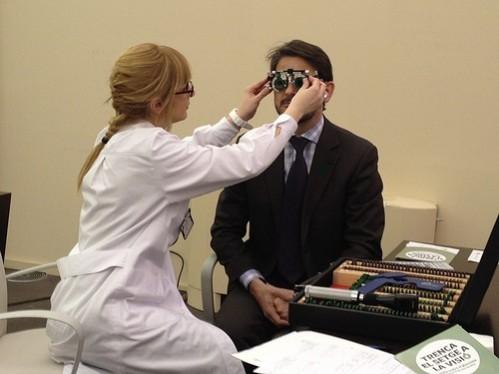 Democràtica de/Flickr)" />
Democràtica de/Flickr)" />A new technique based on gene therapy can help restore sight in people affected with an inherited type of disorder that causes progressive vision loss and permanent blindness, latest research shows.
The study reported in The Lancet looked at six people, diagnosed with choroideremia. Choroideremia is a rare condition that occurs in different stages, starting with night blindness in early childhood, gradually ending up with permanent blindness by middle age. The disorder, caused mainly by a mutation in the CHM gene on the X chromosome, leads to cellular degeneration in the retina and choroid.
At the time of the study, the patients aged between 35 and 63, were in different stages of the disease. During the experiments, researchers, with the help of a genetically engineered adeno-associated virus that was injected into the retina, created a corrective copy of the gene and replaced it with the defective one.
The procedure helped restore visual acuity in the patients. Within six months of the treatment, some of the patients showed great improvement in their ability to see or read. Apart from that, the eyes that received the gene therapy showed greater sensitivity to the light. "This is first time that gene therapy has been used to treat patients with normal visual acuity before the onset of clinically significant retinal thinning," researcher, Professor Robert E MacLaren from the University of Oxford in the UK, said in a news release.
Though the study is still in its initial stages, the findings are expected to pave the way for effective treatments for other types of blindness. "Our findings hold great promise for gene therapy to prevent loss of sight in other retinal diseases such as age-related macular degeneration," MacLaren, added.

















